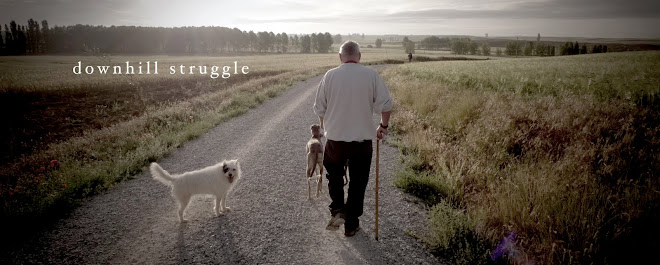The Haiti earthquake, and subsequent comments by the likes of Pat Robertson - got me, and no doubt most people, thinking about Voltaire. Well, we can't think about him often enough. I must thank Mr. Thomas S. Vernon for putting all it so elegantly.
ON NOVEMBER 1, 1755, Lisbon, the capital of Portugal, was virtually destroyed by a terrible earthquake that resulted in the deaths of many thousands of people. In statistical terms this event is by no means at the top of the list of the world's great disasters, but it made a lasting impression on the minds of literate people.
Many of us today know about the Lisbon earthquake who never heard of the more destructive events that have occurred both before and since in various parts of the civilized world. What made the Lisbon earthquake so memorable? No doubt mainly the fact that it was thought about and written about by one man, François Marie Arouet de Voltaire. The tragedy made a life-changing impression on the mind of this man, not only because of the immeasurable human suffering involved, but also because of its religious significance.
When news of the tragedy reached Voltaire he wrote to a friend as follows:
'One would have great difficulty in divining how the laws of movement operate such frightful disasters in the best of all possible worlds.... What will the preachers say, especially if the palace of the Inquisition has been left standing? I flatter myself that the reverend father inquisitors will have been crushed like the others. That should teach men not to persecute men.'
'The best of all possible worlds' is a reference to Gottfried Leibniz, the German philosopher who, in 1710, had published a work explaining that the evil and suffering we witness are necessary features of a world which otherwise would not be as perfect as it is.
This was a popular view among philosophers and theologians of the time: our limited minds cannot grasp reality as it is perceived by an infinite, benevolent, and all-powerful God who, out of an infinite number of possible worlds, has created the best that could be.
This is one way of dealing with what is known in the history of thought as the problem of evil: why do evil and suffering abound in a world created by a beneficent and all-powerful Creator?
The answer, according to Leibniz and others is that we would realize that everything is really for the best, could we but see things from God's point of view. To Voltaire such a resolution of the problem had long seemed insupportable, and the Lisbon earthquake appeared to attack and demolish once and for all a philosophy that insulted human dignity and intelligence.
The view promulgated by Leibniz and others is often characterized as "optimism." Theodore Besterman reminds us that "in this context optimism has nothing to do with one's outlook on life; it is the belief that all that is and happens is for the best." Indeed to some thinkers, including Voltaire, the Leibnizian view makes for the deepest sort of pessimism, for if we were obliged to believe that the conditions of human life we see about us are the best that is possible -- even under the management of an omnipotent and omnibenevolent God then we have good reason to be discouraged, not only about this life but about the life to come as well.
Yet John Wesley, the Methodist patron saint, did not hesitate to attribute the Lisbon tragedy to "sin," to "that curse that was brought upon the earth by the original transgression of Adam and Eve." This should not surprise us, as Wesley was also an enthusiastic supporter of witch burning.
Christian opinion of the question of free will has long been divided, but there is substantial unanimity in claiming the right to exercise free will in the matter of logic!
Voltaire had also read a poem by Alexander Pope in which Pope proclaimed, "Whatever is is right"!
Some Christian apologists have tried to explain away the problem of evil by saying that what the infinite mind of God perceives as reasonable and just may not appear so to our finite intelligence. In his Philosophical Dictionary Voltaire makes short work of this kind of pettifogging sophistry:
The silly fanatic repeats to me ... that it is not for us to judge what is reasonable and just in the great Being, that His reason is not like our reason, that His justice is not like our justice. Eh! how, you mad demoniac, do you want me to judge justice and reason otherwise than by the notions I have of them? Do you want me to walk otherwise than with my feet, and to speak otherwise than with my mouth?
G
Remaining Faithfully Catholic Near the End of the Francis Pontificate
-
By Pete Baklinski at Crisis Magazine: It has become evident to many
Catholics around the world that the Francis pontificate has been a
disappointment and e...
15 hours ago


1 comment:
Just to put in a good word for Wesley and Leibniz. At least they spoke their twaddle with considerably more eloquence than the likes of Pat Robertson and that wind-bag whatshisname on Fox TV.
Post a Comment